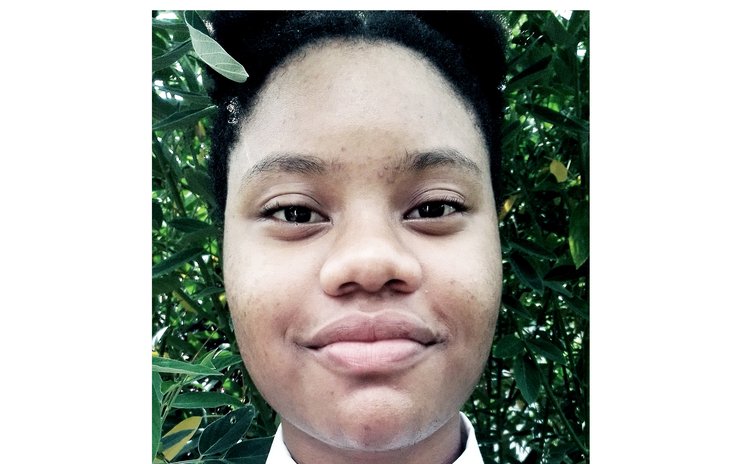Tyler-Ann Hunter wins DCOA essay competition

Twelve-year-old Tyler-Ann Hunter of Goodwill is the winner of the Dominica Council on Ageing Inc. (DCOA) Essay Competition, held during the Month of the Elderly in September.
She won from a total of 13 submissions open to children between the ages of 10 – 15 who were required to write on the topic: "How Can Young People Assist the Elderly in Making Better Use of Digital Technology".
Fifteen-year-old Ayodelle David from Pointe Michel placed second, and D'Janoah Dangleben from Grand Bay (14 years old) was third.
A special prize was also presented to 10-year-old Gabrielle Esprit from Belfast.
Here's the text of the winning essay.
"How can young people assist the elderly in making better use of digital technology"
By Tyler-Ann Hunter
Shane Claiborne stated, "There is a certain power when old and young come together- we can do more together than we can do on our own. "Youth helping older persons in learning about digital technology is certainly one way in which this quote can be strongly demonstrated.
The World Health Organisation (WHO) defines the elderly as a person aged sixty and older. WHO also states that the number and proportion of elderly people in the population are increasing. Societies, therefore, need to make the world more age-friendly.
Digital technologies are electronic tools, systems, devices, and resources that generate, store, and process data. Some examples are social media, online games, multimedia, and mobile phones. There are many benefits of digital technology. It helps with social connectivity, making it easy to stay in touch with friends and family. Digital technology allows for high-speed communication and working remotely. The technology opens new learning opportunities, helps to make machines smarter, and increases access to entertainment and news. Life can be made so much easier by the use of online banking and GPS services.
There are many reasons why the elderly struggle with digital technology. There is a huge gap in the technology that exists today and what the elderly are familiar with. Many elderly persons are not aware of the massive benefits of digital technology to them. They fear the unknown, the devices cause anxiety and they are concerned about internet safety and the negative impact of social media. Older persons have difficulty focusing, vision, and memory loss - all of which make using devices difficult.
Christopher Vogler said, "The young in their innocence is often wise and capable of teaching the old". There are many ways the youth can assist the elderly in learning how to use digital technology. First, young people must be patient and take things slowly.
Concepts should be repeated as many times as needed. They should be allowed to ask questions and given time to practice in the presence of the young tutor. The elderly should be given encouragement and their confidence should be built. Praise must be given constantly. Young teachers should encourage the elderly to take notes, record passwords, and usernames. The personal value and relevance of the technology are some of the key points that must be explained. Security and privacy concerns must be addressed and they should be educated on internet safety, for example not giving out credit cards or Social Security numbers. They can be guided to free resources such as free online computer classes, special apps, and websites created specifically for the elderly. Devices should be adjusted for their needs, for example, those with vision problems may need the device resolution set to make the words larger.
This interaction between the elderly and youth has many mutual benefits. The elderly are energized and faceless isolation. Youth develop a greater appreciation for the elderly. Finally, both broaden their social circles, learn new skills, and are given a sense of purpose and fulfillment.




